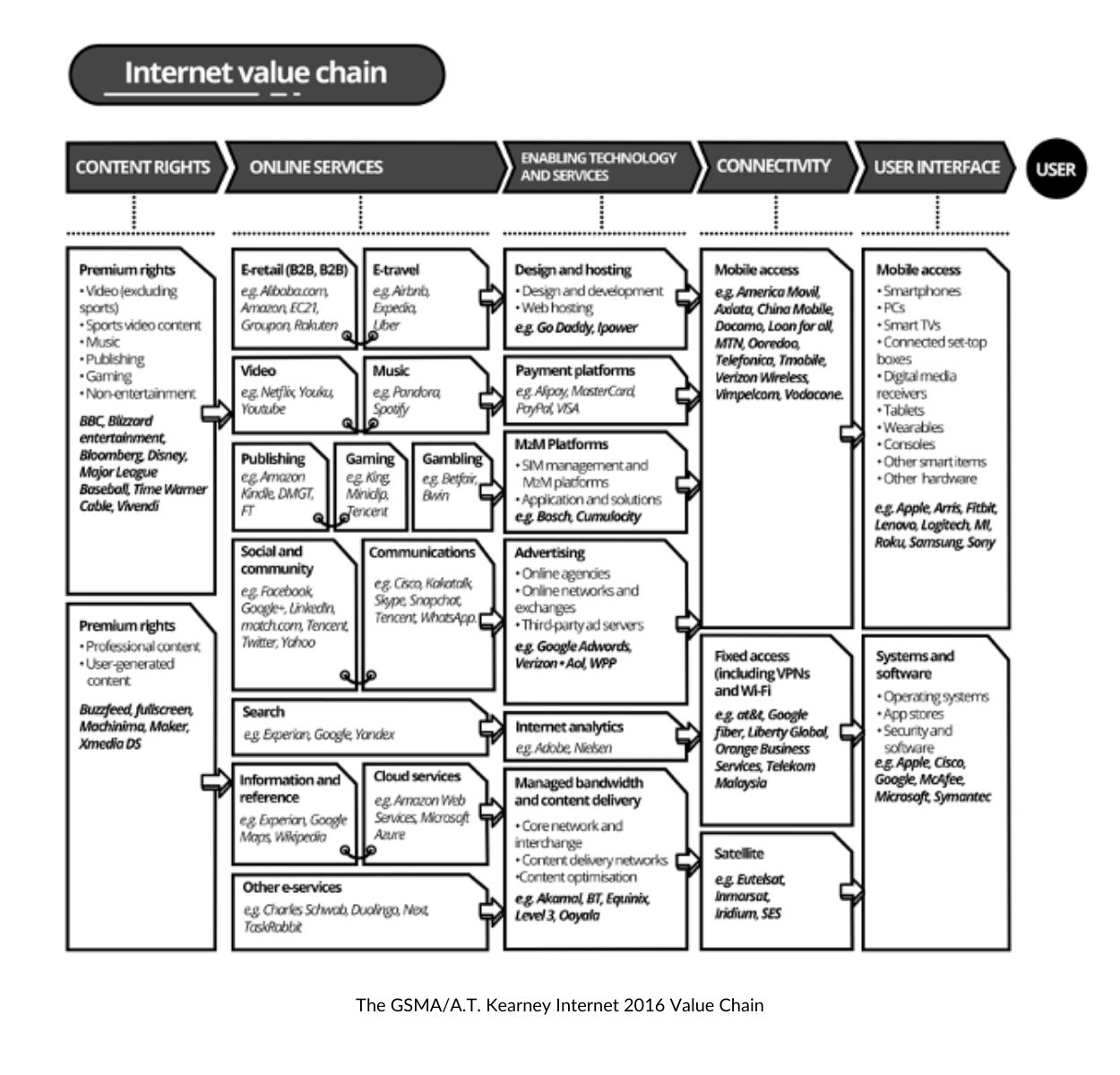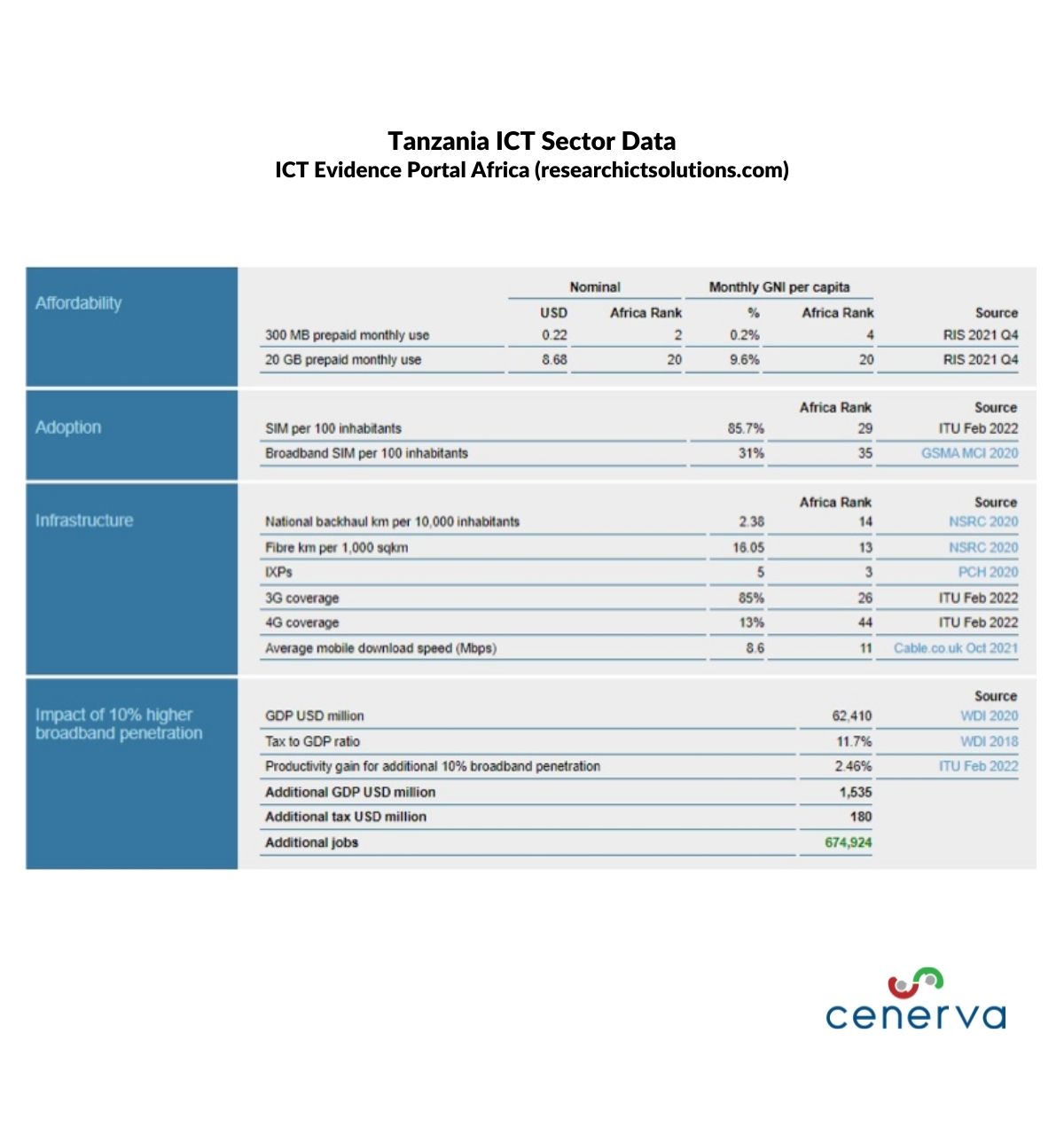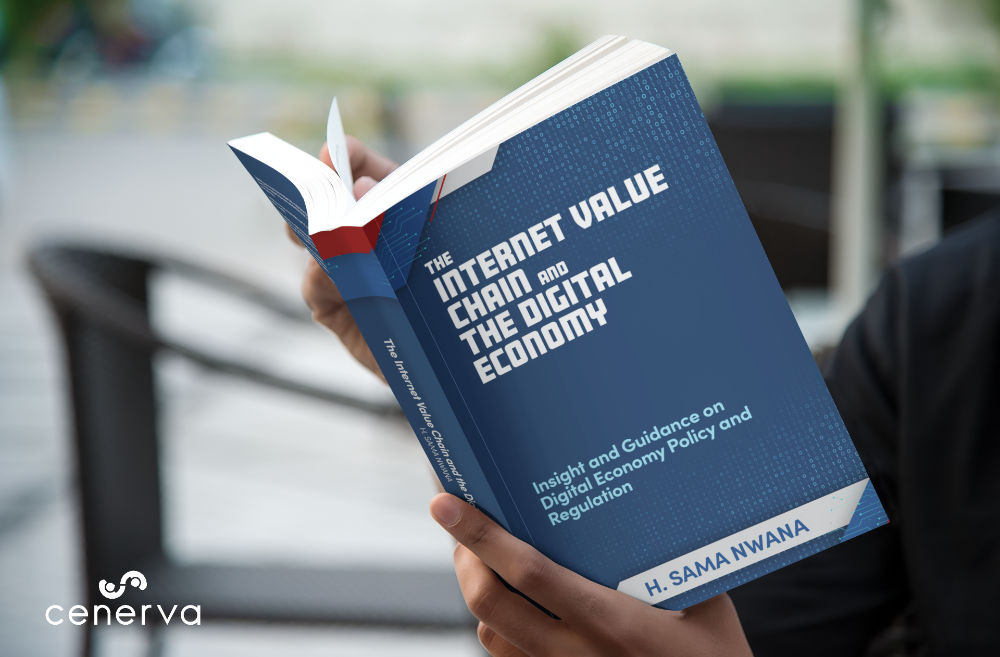At the beginning of March 2022, the Digital Economy Training Program for Tanzania High-Level Policy Makers was held in Zanzibar. The programme was facilitated and convened by the Tanzania Communications Regulatory Authority and heavily supported by Cenerva and its expert trainers.
The conference created a template for understanding the Digital Economy in Tanzania, one that will help shape its future economic growth.
The growth of the digital economy
There has been a rapid and ongoing shift towards digitalisation in all aspects of life in recent years.
This digital transformation is being driven by advances in information and communication technology (ICT), empowering individuals and transforming industries and economies.
ICT-enabled services are playing an increasingly important role in our lives, impacting how we interact, work, shop and receive services. This is changing the very nature of value creation and exchange, with far-reaching implications for businesses, governments, and society.
The digitalisation of the economy transforms traditional business models and creates new opportunities for organisations that can embrace change and innovate. It also opens up new ways for individuals to participate in the economy and create value. The digitalisation of the economy is, therefore, a significant driver of economic growth and prosperity.
Focus for Tanzania
Recognising the rapid growth potential for Tanzania, this cross-functional, senior-level meeting was arranged to begin to create a digital economy vision, mission and strategy for Tanzania.
Bringing together 50 delegates, including Ministers, Chief Secretary for the Revolutionary Government of Zanzibar, Principal/Permanent Secretaries, Regulators, Academics, the Controller and Auditor General, the Internal Auditor General, the Treasury Registrar and the Governor of the Central Bank, this four-day meeting was organised and facilitated by the Tanzania Communications Regulatory Authority (TCRA).
The objectives for the meeting were to:
- achieve a shared understanding of what the Digital Economy may look like in Tanzania
- learn from best practices and how other economies have implemented initiatives around the digital economy
Input from International Experts and Educators
Alongside a team of local facilitators, Cenerva provided a team of consultants and educators who are specialists in training on ICT regulatory policy and digital economy. These were:
Professor H Sama Nwana – Founding/Managing Partner at Cenerva Ltd,
Dr Martin Koyabe – Specialist in Cyber Expertise (GFCE)
Peter Seymour – Specialist in payments and regulatory change
Graham Butler – Expert on data billing
A keynote presentation was delivered by Professor Nwana, who shared insights from his latest book – The Internet Value Chain and The Digital Economy – and how this applies to the Tanzanian economy.
Cross-functional approach
With digitalisation a given – and recognising that this is now more than ICT or telecoms – the debate covered how the evolving digital economy is more encompassing than just a single sector or regulator. Regulation is often falling behind the progress of technology, and to be successful, it requires true multi-sector leadership, preferably with central coordination.

Using the model of the Internet Value Chain (IVC) as a key tool to understanding the Digital Economy and the evolution of the TMT/ICT Sector, Prof Nwana explored new and different models for funding/taxing the sector to move towards a target of 5% of Tanzanian GDP – a move from sector taxes to broad-based taxes for example.
The call for a cross-Government and Agencies approach to maximise the growth of the combined ICT/TMT/Digital Economy sectors was acknowledged, and the meeting attendees agreed that the digital economy journey should take a ‘whole government” approach.
Foundations of the Digital Economy

Digital Economy requires Three Pillar Platforms:
- the Connectivity Platform (ICT Sector)
- the Payment Platform (Finance/Central Bank) and
- the ID Platform
Any country building a digital economy requires these three pillar platforms as a basis:
Connectivity Platform: the connectivity platform consists of a combination of fixed broadband, mobile broadband, mobile narrowband and voice/SMS/USSD. Without connectivity to a maximum percentage of citizens, they would hardly be part of the digital economy.
Payment Platform: this core platform consists of a combination of credit cards, bank accounts and mobile money. Without a widescale payments platform or payment gateways, there can be no real Digital Economy.
Identity (ID) Platform: the ID Platform is a combination of citizen’s platform, National ID, Drivers Licence and/or a unique mobile/cellular number. The aim is for a clear ID programme that ensures a single identity for every citizen in a country, regardless of how many bank accounts they may hold, how many SIM cards they may have, how many credit cards they may hold, etc.
For Tanzania, there is a need to develop a strategy to bridge the 3G to 4G or higher coverage gaps in broadband access and connectivity and empower citizens digitally through easily accessible communications infrastructure and affordable end-user devices to enable them to participate in the digital economy.
Currently, there is an affordability gap because of the relatively high handset prices and the cost of data. There is also an issue relating to the charging of devices due to the low penetration of electricity (35% according to the World Bank).
The payment systems that support internal and external transactions from both the public and private sectors should be coordinated toward a Digital Economy-ready Payments Platform for Tanzania.
There is a need to have a unique personal identification number from birth to death instead of the current practice where multiple numbers/identifications are used.
Awareness and development of these pillars are essential for any country aiming to develop its digital economy.
Opportunities for Tanzania
Developing the capabilities to support the growth of a digital economy will bring many benefits to Tanzania.
Research shows that higher broadband penetration spurs economic growth and job creation. There is a well-established link between broadband penetration and GDP growth. The ITU lists these studies that measure the macroeconomic effects of mobile broadband penetration.

A 10% increase in mobile broadband penetration has resulted in between 0.8% and 2.46% of additional GDP growth, which isn’t a one-off benefit but continues to deliver benefits to the nation both as increased economic prosperity and tax revenues for the state.
This slide shows the potential benefit for Tanzania in achieving a 10% higher broadband penetration.

The digital journey and its complexities
Digitalising economies has consequences: ranging from Big Tech competition risks, cybercrime, harmful online content, fake news and disinformation, to social media amplification algorithms, and much more.
The digital economy is increasingly a part of our world, presenting new challenges for regulators and policy-makers.
If you are interested in learning more on this topic, Prof Nwana’s book – The Internet Value Chain and The Digital Economy – explores, in-depth, the key policy considerations for the digital economy and offers recommendations on potential solutions for policy-makers and regulators to help develop a balanced, efficient, and coordinated approach in regulating a complex environment.

Beginning with an introduction to the Internet Value Chain (IVC) and its economic impacts, the author provides structure and characterisation of the positive and negative externalities, the latter in terms of their risks and harms, considering how these need to be controlled or regulated.
The regulatory principles and best practices we need to consider in the digital economy are defined using a combination of the current offline telecoms, media & technology challenges, new Big Tech risks and harms, and the numerous online issues arising from the IVC.
This book will be of interest to anyone interested in internet regulation or digital economy policy. In addition, it will be helpful for those involved in designing policies, regulations, research programmes or strategies related to these subjects.
The challenging new Digital Economy areas are covered in-depth:
- Offline TMT/ICT
- Digital Economy Platforms
- Future of Content, Broadcasting and Media Regulation
- Online Content Harms
- Big Tech Regulation
- Cybercrime
- Cybersecurity
- AI and Big Data
- Privacy
- Data Protection
- Electronic Commerce
- Over-The-Top (OTT) Regulation
- Digital Economy Capacity Building
Cenerva is also running a brand new Executive Digital Economy Master Class – designed for senior executives with experience in the sector or as a follow up to the Cenerva ICC Regulatory TRMC for those seeking an advanced knowledge. This Executive Digital Economy TRMC programme has been developed to provide a comprehensive understanding of key issues in this fast-moving and increasingly complex sector.
The 2022 courses are running in May for the online programme and July for the in person, residential course in Bath, UK. Read more about the course and how to book on the Executive Digital Economy page.
International 5G News Service
Keep up to date with the latest news from around the world relating to 5G developments. Get it delivered directly to your inbox by subscribing to our email service.






